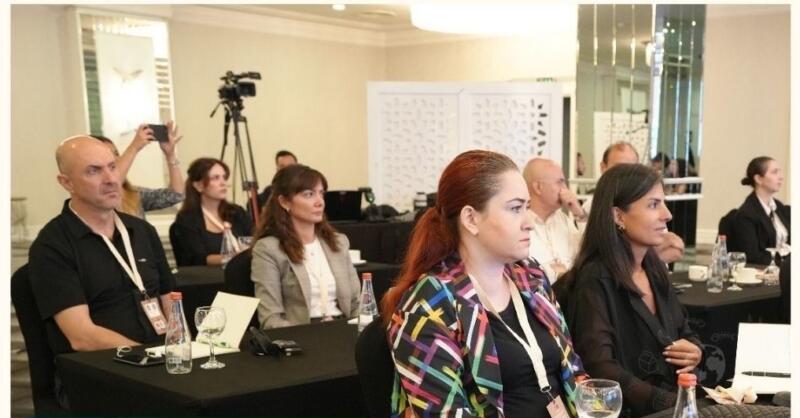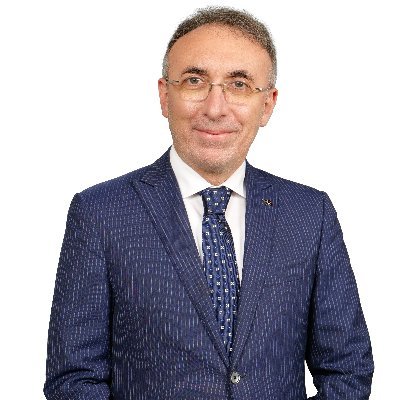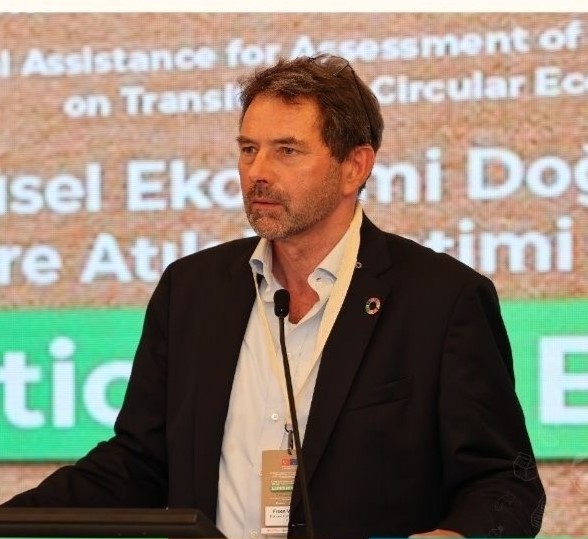¨Training of Trainers¨ on integrated waste management in line with the circular economy kicks off in Sakarya
September 20, 2024
The “Training of Trainers on Integrated Waste Management in line with the Circular Economy” program, part of the DEEP project, officially started in Sakarya from September 16-19, 2024. This comprehensive program, designed to provide trainers with essential knowledge of circular economy principles and integrated waste management strategies, is a pivotal step towards a more sustainable future.
Türkiye’s General Directorate of Environmental Management hosted the four-day program, which featured expert-led discussions, a deep dive into sustainable practices, and a deep dive into sustainable practices, helping Türkiye further its goals in transitioning to a circular economy.

Thanks to our Zero Waste Project and alignment with circular economy principles, we have increased our recycling rate from 13% in 2017 to approximately 35%. Our goal is to reach 60% by 2035.
Mr. Fatih Turan, Turkey General Manager of Environmental Management
Türkiye’s pathway to sustainability through the DEEP Project
Freek van Eijk, CEO of Holland Circular Hotspot, emphasized the EU’s ongoing commitment to the circular economy, outlining key initiatives from the EU Circular Economy Action Plan.
He outlined key regulations and initiatives to reduce environmental impact and advance circularity across various sectors, such as:
- The Sustainable Batteries Regulation and the Ecodesign Regulation for Sustainable Products (ESPR) are both designed to minimise products’ ecological footprints.
- The EU Strategy for Sustainable and Circular Textiles promotes sustainability throughout the textile value chain.
- The Waste Shipment Regulation enhances controls on international waste shipments.
- The EU Rules for Empowering Consumers in the Green Transition enable individuals to make informed and environmentally friendly choices.
- The Directive on the Repair of Goods aims to extend product lifespan by improving durability and reparability.
- Van Eijk introduced updates on the New Waste Framework Directive Proposal and the Packaging and Packaging Waste Regulation Proposal, which target waste reduction across industries.
- The Proposal on Green Claims Directive aims to prevent misleading environmental claims and thus help consumers make more sustainable choices.
Lastly, he presented the Revised Construction Materials Regulation Proposal, which establishes a harmonised framework for assessing and communicating construction products’ environmental and climate impact. Noting that the construction sector accounts for nearly half of all material extraction and energy demand and significant water consumption, waste, and CO2 emissions, van Eijk emphasised the urgent need for greener construction practices.
Circular economy does not only reinforce Turkey to face the climate challenges and reach its climate neutrality objectives but also creates business opportunities in several fields
Freek Van Eijk, CEO of Holland Circular Hotspot
About the DEEP project
The DEEP project is a European initiative to help Türkiye move towards a circular economy. This means changing how resources are used and how waste can be handled sustainably. DEEP also aims to strengthen Türkiye’s businesses and technology as we shift to this new way of doing things, following the EU Circular Economy Model.
At the heart of this initiative is creating a National Strategy and Action Plan explicitly tailored to Türkiye’s needs. Considering its unique socio-economic and industrial circumstances, this roadmap will guide the country’s transition to a more circular economy.
The DEEP project is a collaboration between crucial Turkish institutions and international partners, including six government ministries, the Union of Municipalities, Small and Medium Enterprises Development (KOSGEB), industry and consumer associations, Türkiye’s Statistical Office (TÜİK), and several NGOs. International expertise also contributes to the initiative, with Holland Circular Hotspot providing knowledge and support, drawing on their extensive experience in circular economy transitions.
Holland Circular Hotspot’s involvement in the project is pivotal. Drawing on their extensive experience and success in implementing circular economy practices in the Netherlands and beyond, they bring valuable knowledge, expertise, and international best practices to Türkiye.
